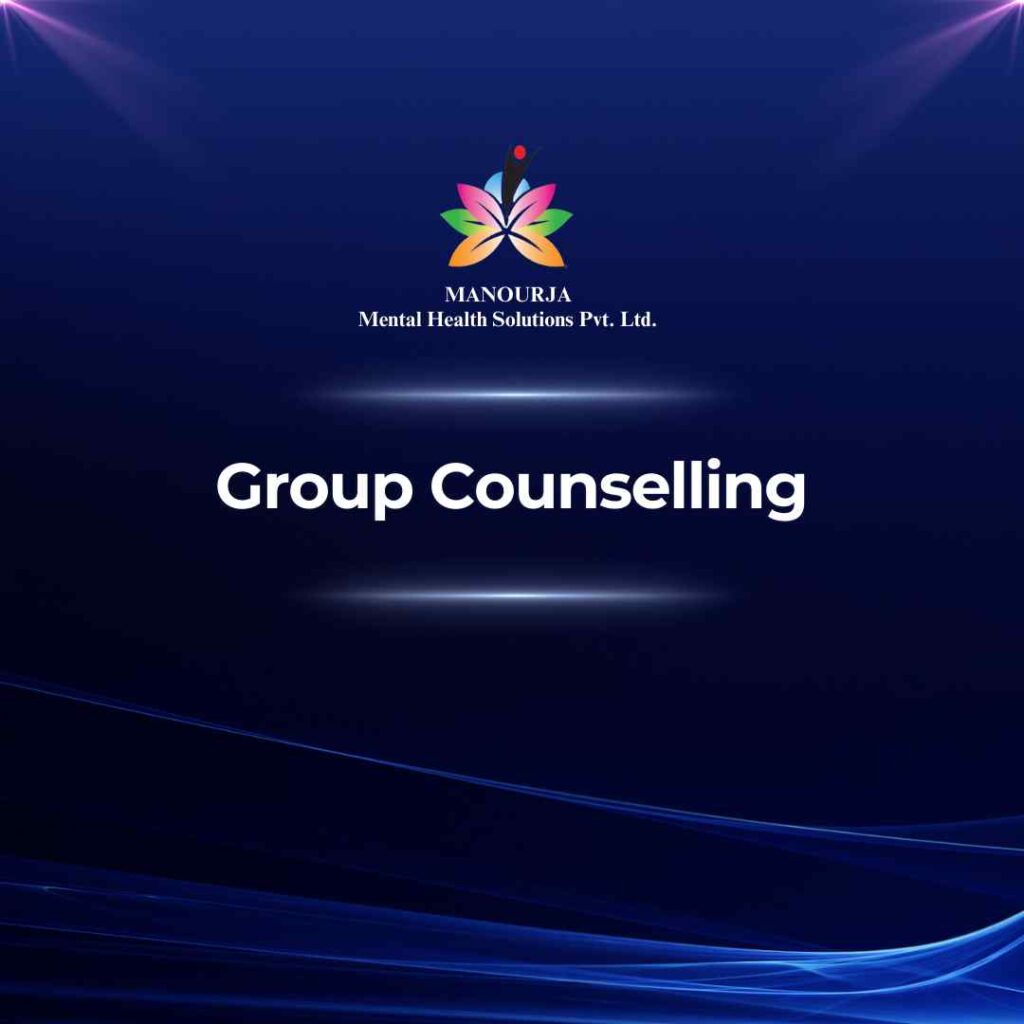Group Counselling

Group problems occur when a collection of individuals (such as a work team, a family, or a social group) experience conflict, communication breakdowns, or a failure to meet common goals. These issues can significantly impact the functionality and morale of the group.
Common Symptoms of Group Problems Include
- Poor Communication: Misunderstandings or lack of clear communication, leading to confusion and conflicts.
- Lack of Cohesion: Members feel disconnected from each other, leading to a lack of trust or a sense of belonging within the group.
- Inefficiency: The group struggles to accomplish tasks or reach decisions effectively.
- Conflict: Persistent disagreements or disputes among members that are unresolved and affect group dynamics.
- Low Morale: General dissatisfaction or lack of motivation among group members.
- Dominance of Certain Members: When one or few members overpower discussions or decision-making, leading to imbalance and resentment.
These symptoms can hinder the group’s ability to function effectively and achieve its objectives, leading to frustration and reduced productivity.
How Counselling Effectively Treats Group Problems
Counselling can help by facilitating better communication, enhancing understanding among group members, and developing strategies to manage conflicts effectively.
- Group Therapy: Offers a structured environment for members to express their thoughts and feelings, understand different perspectives, and learn to communicate more effectively.
- Conflict Resolution Techniques: Teaches the group constructive ways to address and resolve conflicts, enhancing cooperation and collaboration.
- Team Building Activities: Designed to improve group cohesion and trust, helping members work together more effectively.
- Communication Skills Training: Focuses on improving the way group members express themselves and listen to others, crucial for efficient and effective communication.
- Leadership Development: Helps identify and train potential leaders within the group to manage dynamics and keep the group focused on its goals.
Steps Followed in MANOURJA for Counselling of Group
- Initial Assessment: Evaluating the group dynamics, the nature of the problems, and the specific needs of the group.
- Goal Setting: Working with the group to define clear objectives for what they hope to achieve through Counselling, such as improved communication, resolution of conflicts, or enhanced group cohesion.
- Development of a Personalized Treatment Plan: Crafting a tailored approach that includes group therapy sessions, conflict resolution training, and other relevant interventions.
- Regular Counselling Sessions: Conducting sessions that provide opportunities for group interaction, discussion, and activities that target the group’s goals.
- Continuous Monitoring and Adaptation: Regularly assessing the group’s progress and dynamics, making necessary adjustments to interventions to ensure effectiveness and relevance.
Through these therapeutic interventions, Counselling at MANOURJA aims to restore and enhance the functionality of groups, enabling them to overcome challenges and work together towards common goals more effectively.
“Each new day is a fresh start to strengthen our bonds and elevate our collective potential”
